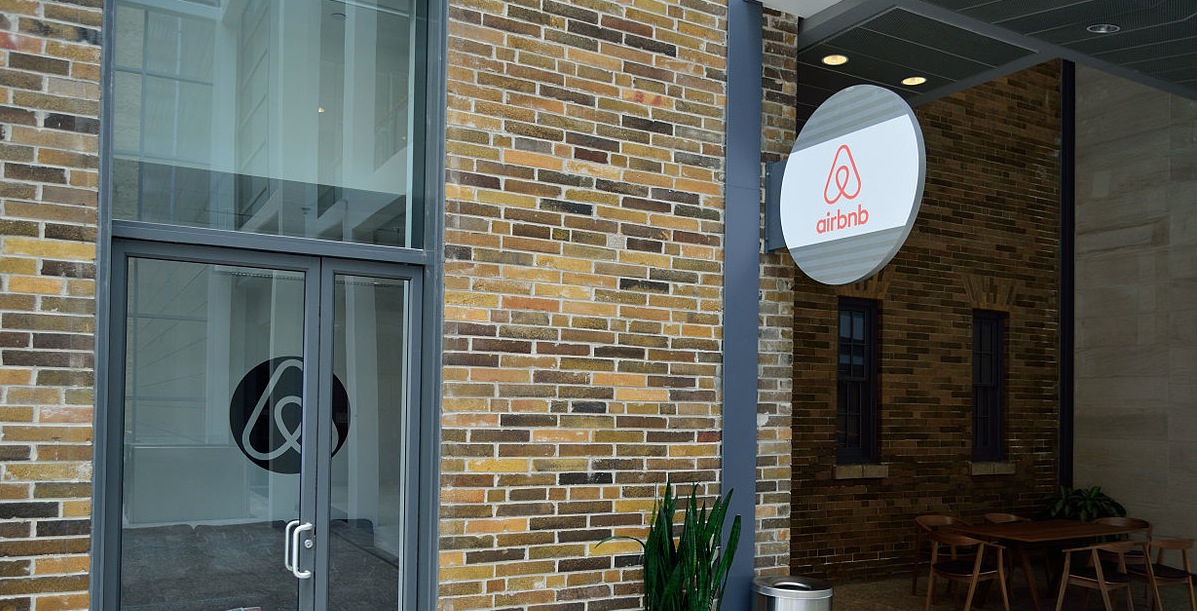Now that Airbnb has rattled the hotel industry, is it only a matter of time before it offers customers longer-term rental options?
The influential West Coast consultant John Burns Real Estate Consulting recently told its newsletter subscribers that it “senses a trend developing” where Airbnb—which is on pace to book 80 million nights in 2015—has its expansion eyes set on becoming part of the apartment market.
The consultant recently conducted an apartment feasibility study for a proposed new building whose developer might include some units devoted to Airbnb users. John Burns suggests that other apartment developers could consider setting aside some units “as a kind of Airbnb rental pool to maximize revenue and market flexibility,” especially when apartment market conditions are soft.
“The key will be having a location that can tap into the burgeoning Airbnb user stream,” the consultant writes.
It remains to be seen whether what Burns has spotted turns out to be a trend or an anecdote. But there’s no denying that since 2008, when it was founded, San Francisco-based Airbnb has become a juggernaut, with listings in more than 34,000 cities and 190 countries. Investors value the company at around $24 billion, according to the New York Times.
The company has also proven itself to be a savvy defender against critics who feel threatened by its growing popularity and insist that its business model unfairly skews the affordable housing market or skirts regulations and taxes enforced on other forms of hospitality.
Airbnb spent heavily last year to defeat a law in San Francisco that would have limited its services there. As proof that it wasn’t materially affecting housing affordability by turning homes into short-term rentals, Airbnb recently wheeled out a report that claimed nearly 80% of its listings in Sealtle are rented less than 90 days a year.
Crain’s New York Business reports that Airbnb has been lobbying New York lawmakers to change rules that limit the number of days an owner or renter in New York City can lease or sublease a home or apartment to under 29 days. Airbnb claims it removed more than 2,000 listings in 2014 after New York State’s attorney general, Eric T. Schneiderman, filed an affidavit that alleged that two-thirds of the apartments listed in the city were illegal sublets.
According to data the company recently made public about its network in New York City, as of Nov. 17, 2015 there were slightly under 36,000 listings on its platform, and the median number of nights booked per listing in the previous year was 42.
Its New York City data also show that hosts there earn a median of $5,110 per year from renting their apartments or homes to visitors. Airbnb characterizes these earnings as “an economic lifeline for families.” The company data show that 72% of its hosts in New York say they depend on this income to stay in their homes.
Related Stories
MFPRO+ News | Jun 3, 2024
Seattle mayor wants to scale back energy code to spur more housing construction
Seattle’s mayor recently proposed that the city scale back a scheduled revamping of its building energy code to help boost housing production. The proposal would halt an update to the city’s multifamily and commercial building energy code that is scheduled to take effect later this year.
Resiliency | Jun 3, 2024
Houston’s buyout program has prevented flood damage but many more homes at risk
Recent flooding in Houston has increased focus on a 30-year-old program to buy out some of the area’s most vulnerable homes. Storms dropped 23 inches of rain on parts of southeast Texas, leading to thousands of homes being flooded in low-lying neighborhoods around Houston.
MFPRO+ New Projects | May 29, 2024
Two San Francisco multifamily high rises install onsite water recycling systems
Two high-rise apartment buildings in San Francisco have installed onsite water recycling systems that will reuse a total of 3.9 million gallons of wastewater annually. The recycled water will be used for toilet flushing, cooling towers, and landscape irrigation to significantly reduce water usage in both buildings.
MFPRO+ News | May 28, 2024
ENERGY STAR NextGen Certification for New Homes and Apartments launched
The U.S. Environmental Protection Agency recently launched ENERGY STAR NextGen Certified Homes and Apartments, a voluntary certification program for new residential buildings. The program will increase national energy and emissions savings by accelerating the building industry’s adoption of advanced, energy-efficient technologies, according to an EPA news release.
MFPRO+ News | May 24, 2024
Austin, Texas, outlaws windowless bedrooms
Austin, Texas will no longer allow developers to build windowless bedrooms. For at least two decades, the city had permitted developers to build thousands of windowless bedrooms.
Mass Timber | May 22, 2024
3 mass timber architecture innovations
As mass timber construction evolves from the first decade of projects, we're finding an increasing variety of mass timber solutions. Here are three primary examples.
Mixed-Use | May 22, 2024
Multifamily properties above ground-floor grocers continue to see positive rental premiums
Optimizing land usage is becoming an even bigger priority for developers. In some city centers, many large grocery stores sprawl across valuable land.
MFPRO+ News | May 21, 2024
Massachusetts governor launches advocacy group to push for more housing
Massachusetts’ Gov. Maura Healey and Lt. Gov. Kim Driscoll have taken the unusual step of setting up a nonprofit to advocate for pro-housing efforts at the local level. One Commonwealth Inc., will work to provide political and financial support for local housing initiatives, a key pillar of the governor’s agenda.
MFPRO+ News | May 21, 2024
Baker Barrios Architects announces new leadership roles for multifamily, healthcare design
Baker Barrios Architects announced two new additions to its leadership: Chris Powers, RA, AIA, NCARB, EDAC, as Associate Principal and Director (Healthcare); and Mark Kluemper, AIA, NCARB, as Associate Principal and Technical Director (Multifamily).
MFPRO+ News | May 20, 2024
Florida condo market roiled by structural safety standards law
A Florida law enacted after the Surfside condo tower collapse is causing turmoil in the condominium market. The law, which requires buildings to meet certain structural safety standards, is forcing condo associations to assess hefty fees to make repairs on older properties. In some cases, the cost per unit runs into six figures.

















